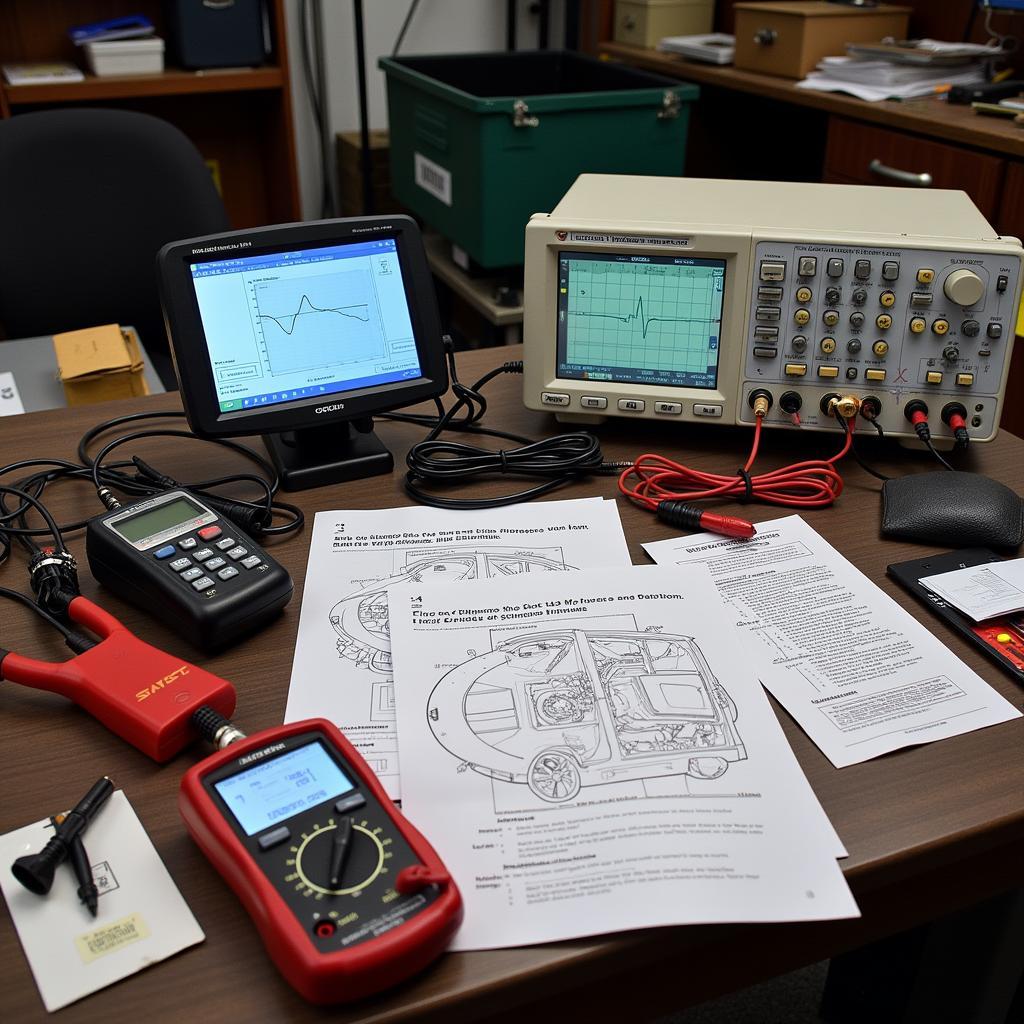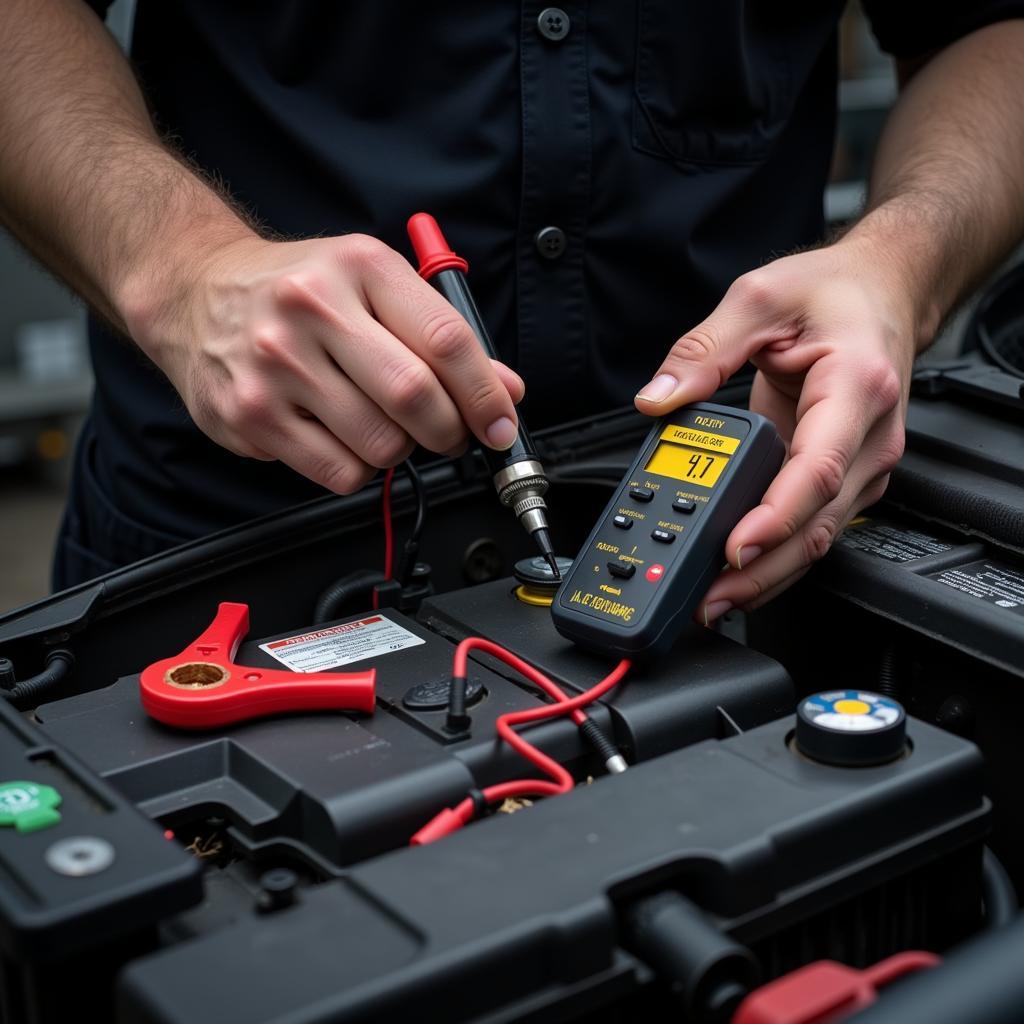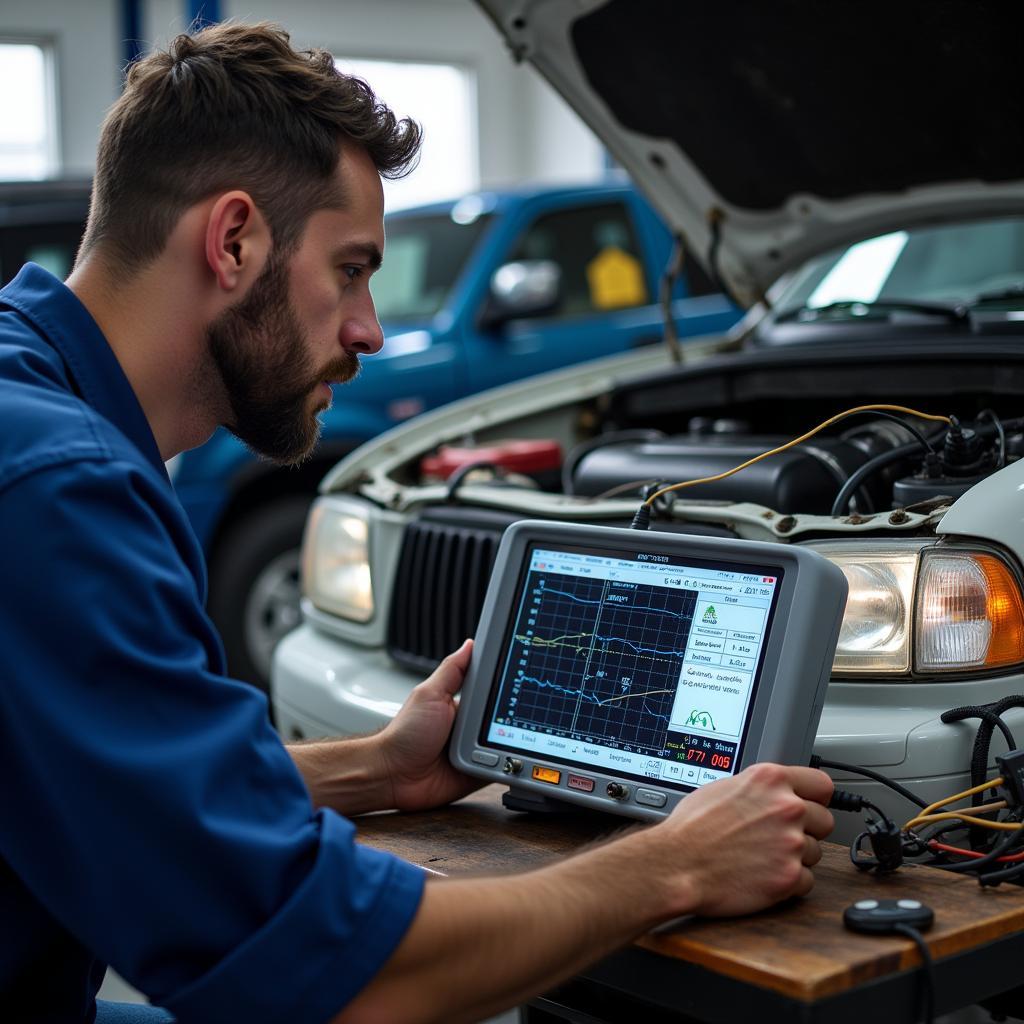Understanding the intricate network of sensors, circuits, and modules that make up a modern vehicle’s electrical system can feel like navigating a labyrinth. That’s where Car Electrical Diagnostic Tools become a mechanic’s guiding light. These tools, ranging from basic multimeters to advanced scan tools, empower technicians to pinpoint electrical faults quickly and accurately.
 Car Diagnostic Tools Overview
Car Diagnostic Tools Overview
Why Invest in Quality Car Electrical Diagnostic Tools?
Investing in the right car electrical diagnostic tools is not just about keeping up with technological advancements in the automotive industry; it’s about maximizing efficiency and accuracy in your work. Here’s why:
- Pinpoint Problems Faster: Diagnostic tools can quickly identify the root cause of an electrical issue, saving you valuable diagnostic time.
- Reduce Guesswork: Eliminate the need for time-consuming trial-and-error methods by getting precise readings and data from your diagnostic tools.
- Enhance Professionalism: Using advanced diagnostic equipment demonstrates your commitment to providing high-quality service to your customers.
- Stay Ahead of the Curve: The automotive industry is constantly evolving. Investing in modern diagnostic tools ensures you can work on a wider range of vehicles.
Must-Have Car Electrical Diagnostic Tools
Building a well-equipped diagnostic arsenal doesn’t have to break the bank. Here are some essential car electrical diagnostic tools that every mechanic should consider:
1. Digital Multimeter: The Foundation of Electrical Diagnostics
A digital multimeter is the cornerstone of any electrical diagnostic toolkit. This versatile tool measures voltage, current, and resistance, allowing you to:
- Test Battery Voltage: Determine the battery’s state of charge and identify potential charging system issues.
- Check Continuity: Verify the integrity of wires, fuses, and connections by checking for breaks or shorts.
- Measure Current Draw: Identify components drawing excessive current, which can indicate a short circuit or malfunction.
 Mechanic Using Digital Multimeter
Mechanic Using Digital Multimeter
2. OBD-II Scanner: Unlocking Your Car’s Brain
The On-Board Diagnostics II (OBD-II) port, standard on most vehicles manufactured after 1996, provides a wealth of information about your car’s engine and emissions systems. An OBD-II scanner allows you to:
- Read and Clear Diagnostic Trouble Codes (DTCs): Identify the source of check engine lights and other warning indicators.
- View Live Data Stream: Monitor real-time sensor readings such as engine RPM, coolant temperature, and oxygen sensor voltage, helping you diagnose issues while the engine is running.
- Perform Actuation Tests: Command specific components to activate, such as fuel injectors or solenoids, to check for proper operation.
car electrical diagnostics tools
3. Circuit Testers: Tracing the Flow
Circuit testers are indispensable for tracing the path of electrical current and identifying open circuits, shorts, and bad grounds. These handy tools typically come in various forms:
- Test Light: A simple yet effective tool that illuminates when a complete circuit is detected, helping you find breaks in wiring.
- Powered Circuit Probe: Similar to a test light but includes its own power source, allowing you to test circuits without relying on the vehicle’s battery.
- Circuit Breaker Finder: Helps you locate the correct circuit breaker in a fuse box by sending a signal through the circuit.
4. Oscilloscope: Visualizing Electrical Signals
For more advanced diagnostics, an oscilloscope is an invaluable tool. It allows you to visualize electrical signals over time, providing insights that multimeters can’t. Use an oscilloscope to:
- Diagnose Sensor Issues: Analyze the waveform patterns of sensors such as crankshaft position sensors, camshaft position sensors, and throttle position sensors to identify faulty signals.
- Test Ignition Systems: Observe the high-voltage signals in the ignition system, including spark plug firing patterns, to diagnose misfires or other ignition problems.
 Mechanic Analyzing Waveforms
Mechanic Analyzing Waveforms
5. Wiring Diagrams and Service Information: Your Roadmap to Success
No matter how sophisticated your diagnostic tools are, their effectiveness relies heavily on your understanding of the vehicle’s electrical system. Access to accurate wiring diagrams and service information is crucial. These resources provide:
- Circuit Diagrams: Detailed illustrations of the vehicle’s electrical system, showing the connections between components, wire colors, and fuse locations.
- Component Locations: Information on the physical location of sensors, actuators, and other electrical components.
- Diagnostic Procedures: Step-by-step instructions from the vehicle manufacturer on how to diagnose and repair specific electrical issues.
Choosing the Right Car Electrical Diagnostic Tools
With so many car electrical diagnostic tools available, selecting the right ones can feel overwhelming. Consider these factors when making your decision:
- Your Budget: Diagnostic tools range in price from affordable to quite expensive. Prioritize essential tools within your budget and gradually expand your collection.
- Your Skill Level: Start with user-friendly tools if you’re new to automotive electrical diagnostics. As your expertise grows, consider investing in more advanced equipment.
- The Types of Vehicles You Service: If you specialize in a particular make or model of vehicle, ensure the tools you choose are compatible and provide adequate coverage.
- Future-Proofing Your Investment: Look for tools with software update capabilities to stay current with evolving vehicle technology.
Conclusion
Effective car electrical diagnostics rely on a combination of knowledge, experience, and the right tools. By investing in essential car electrical diagnostic tools and continuously expanding your understanding of automotive electrical systems, you’ll be well-equipped to tackle even the most challenging electrical gremlins. Remember that reliable car electrical diagnostic tools are an investment in your efficiency, accuracy, and ultimately, your success as a mechanic.

Leave a Reply